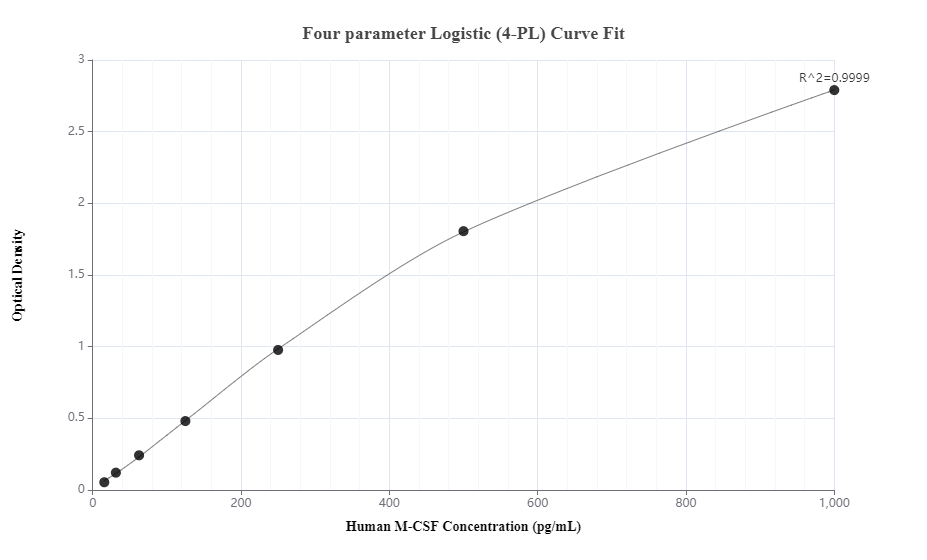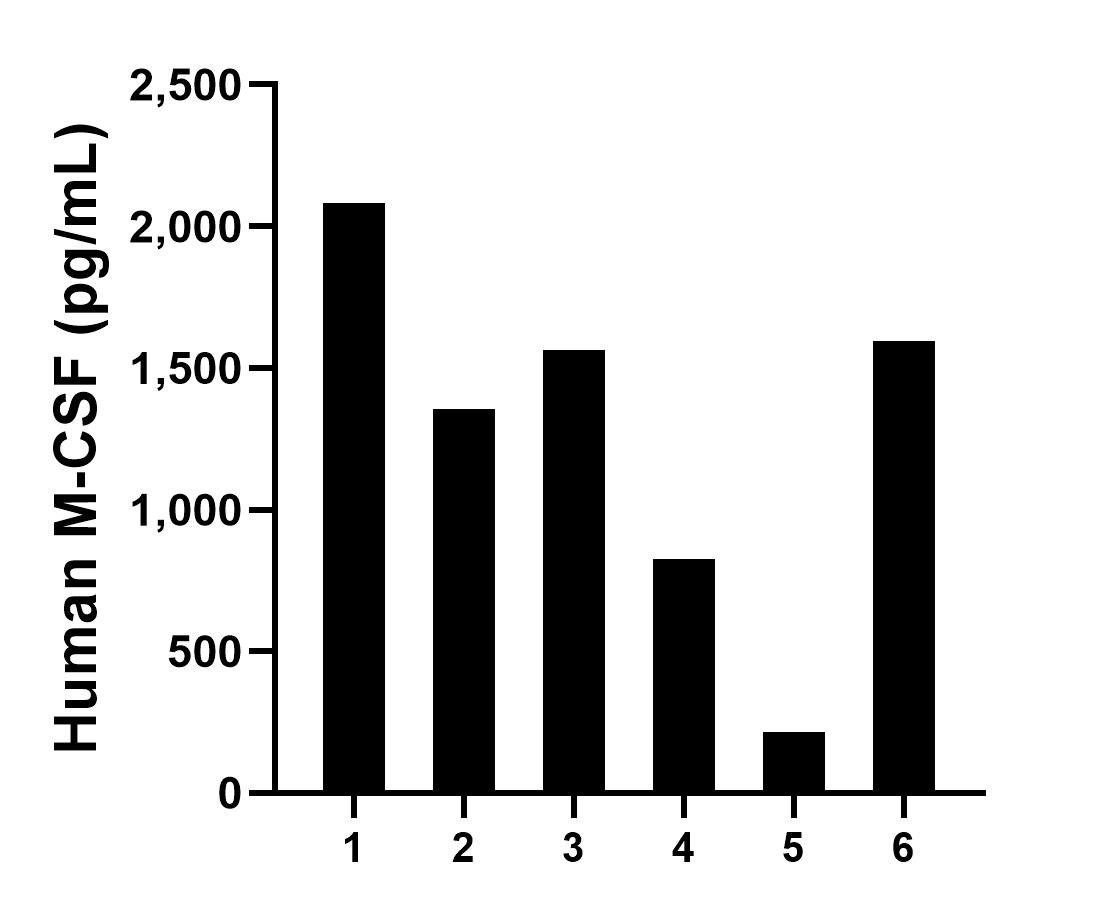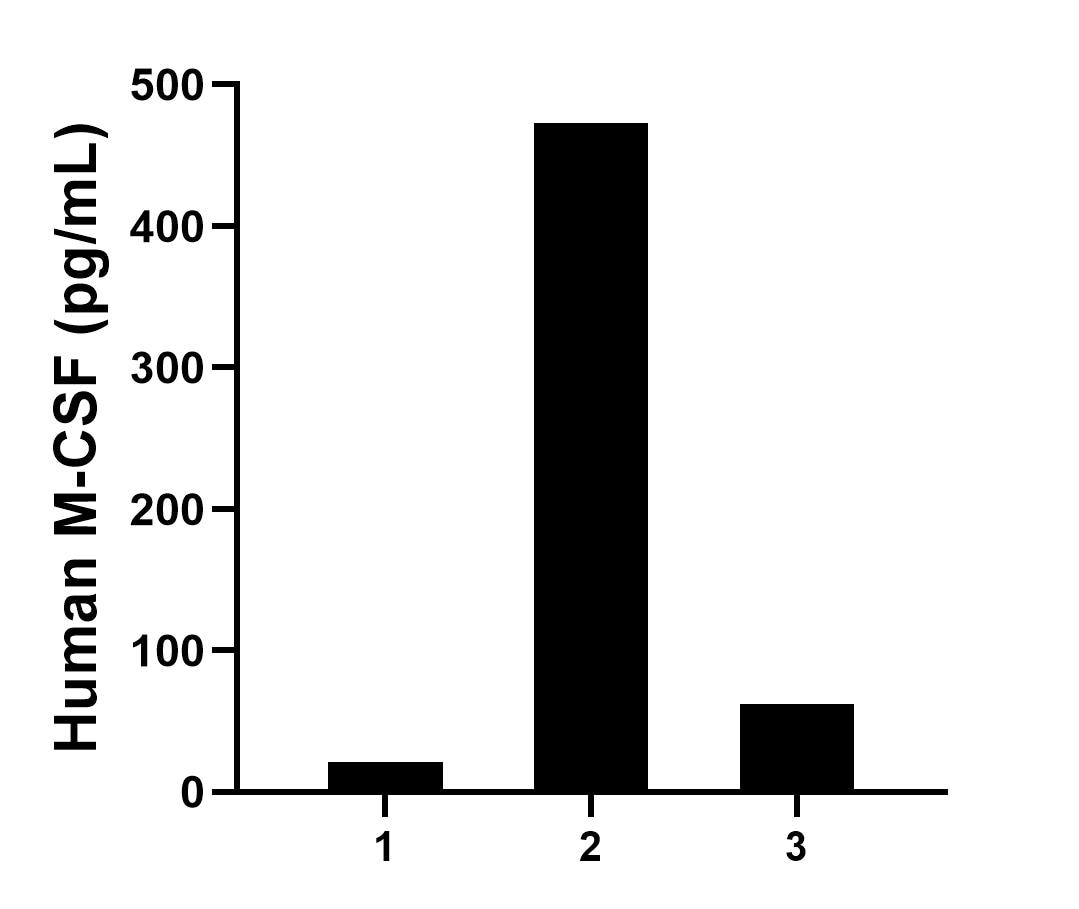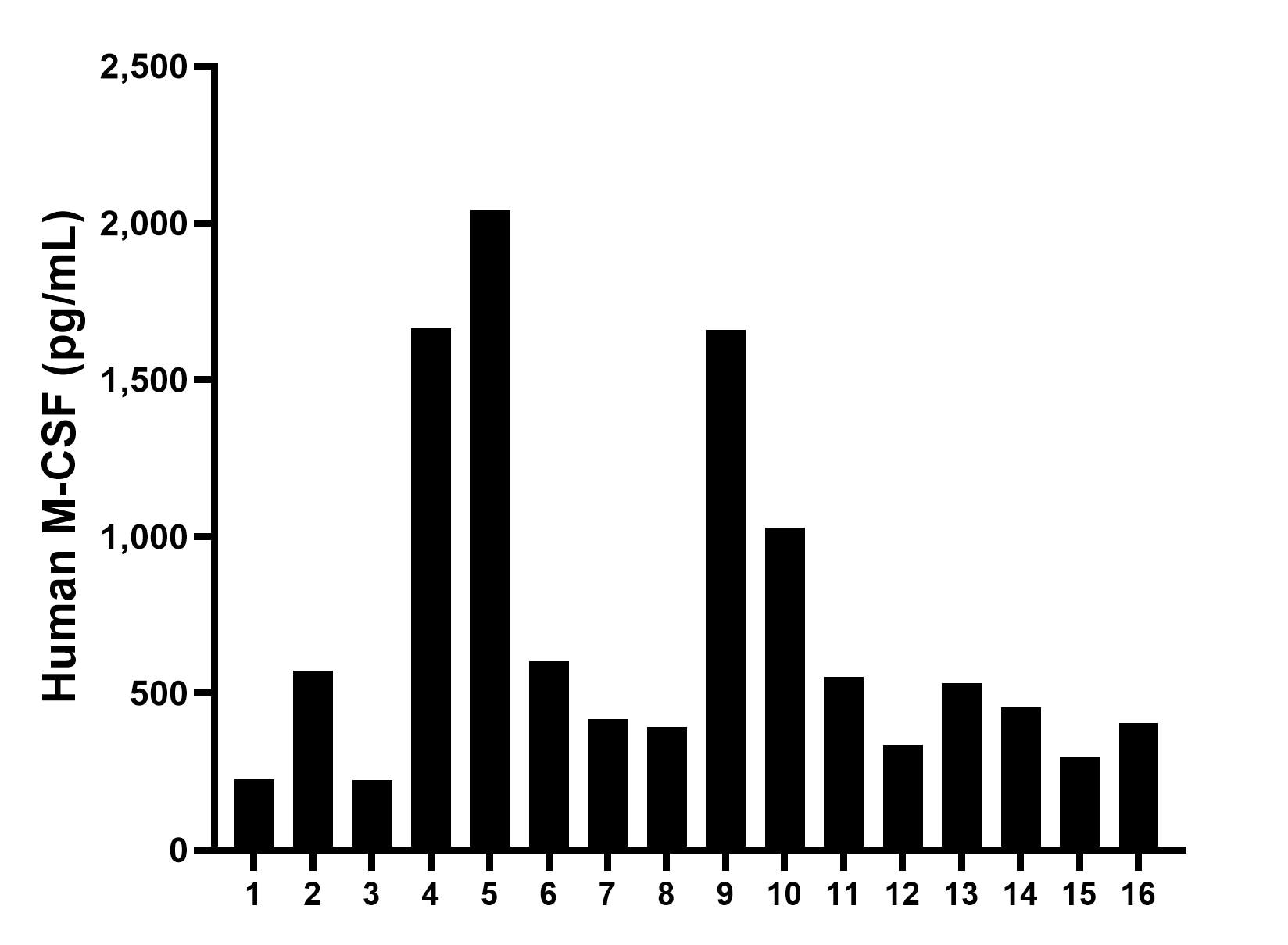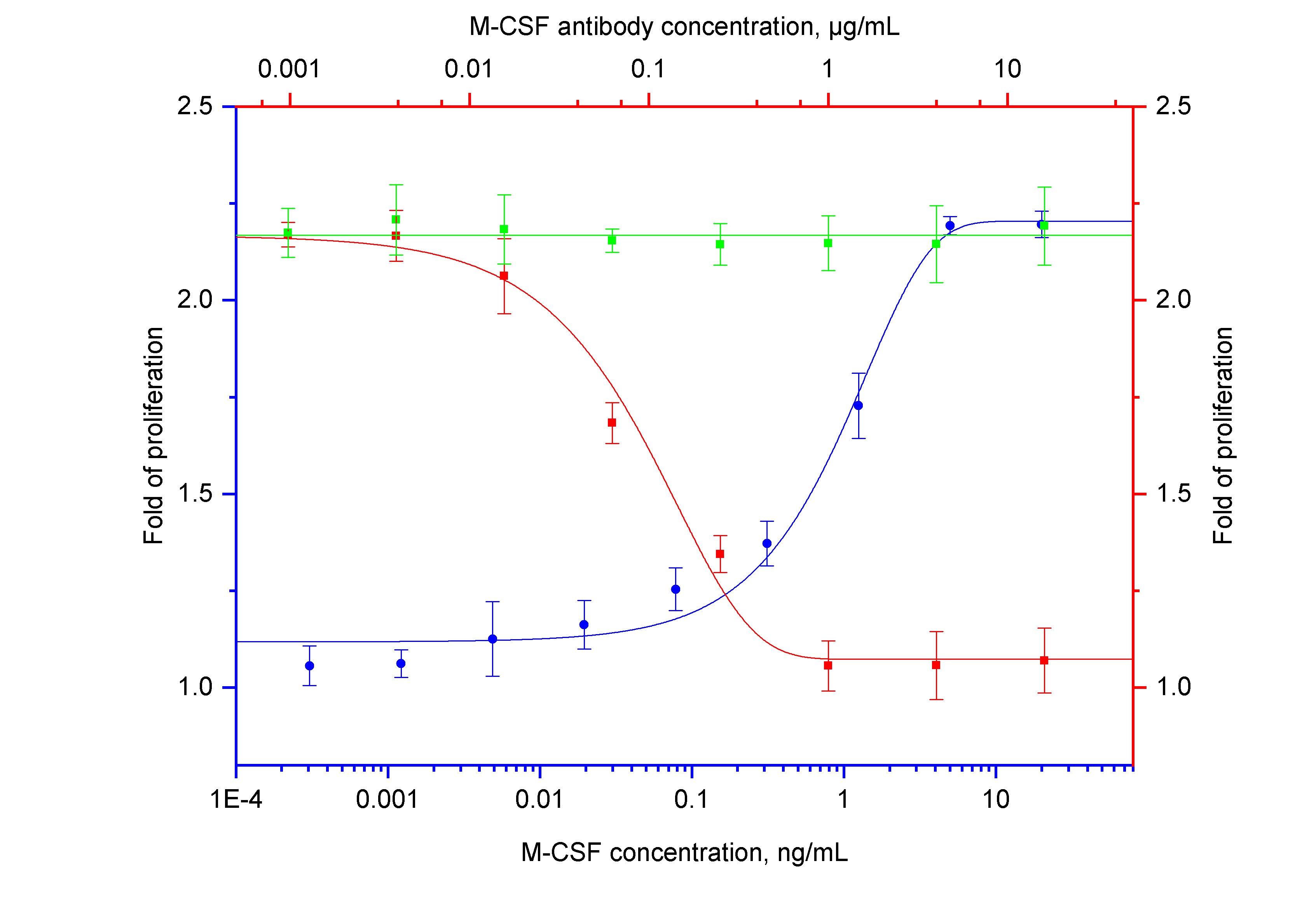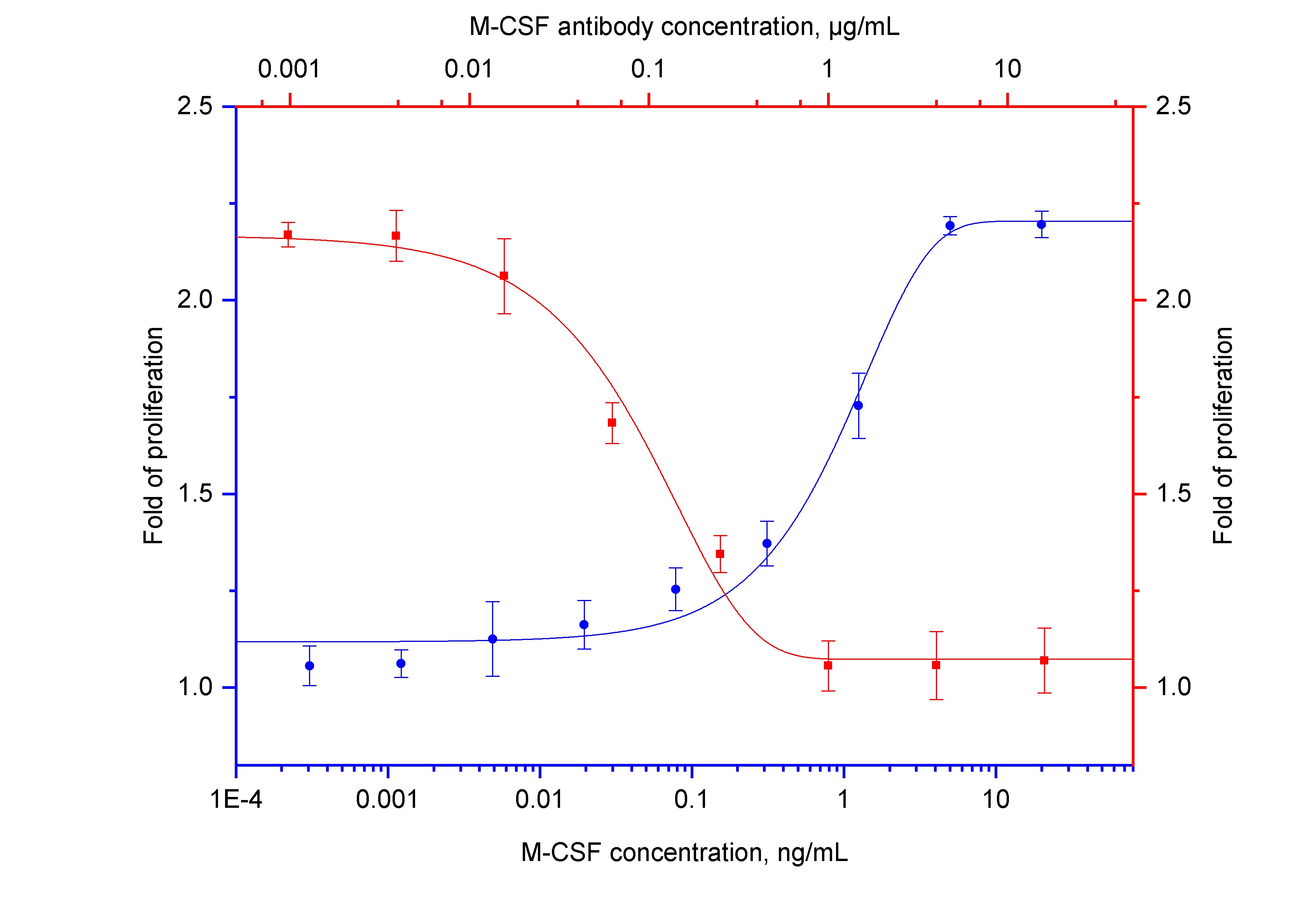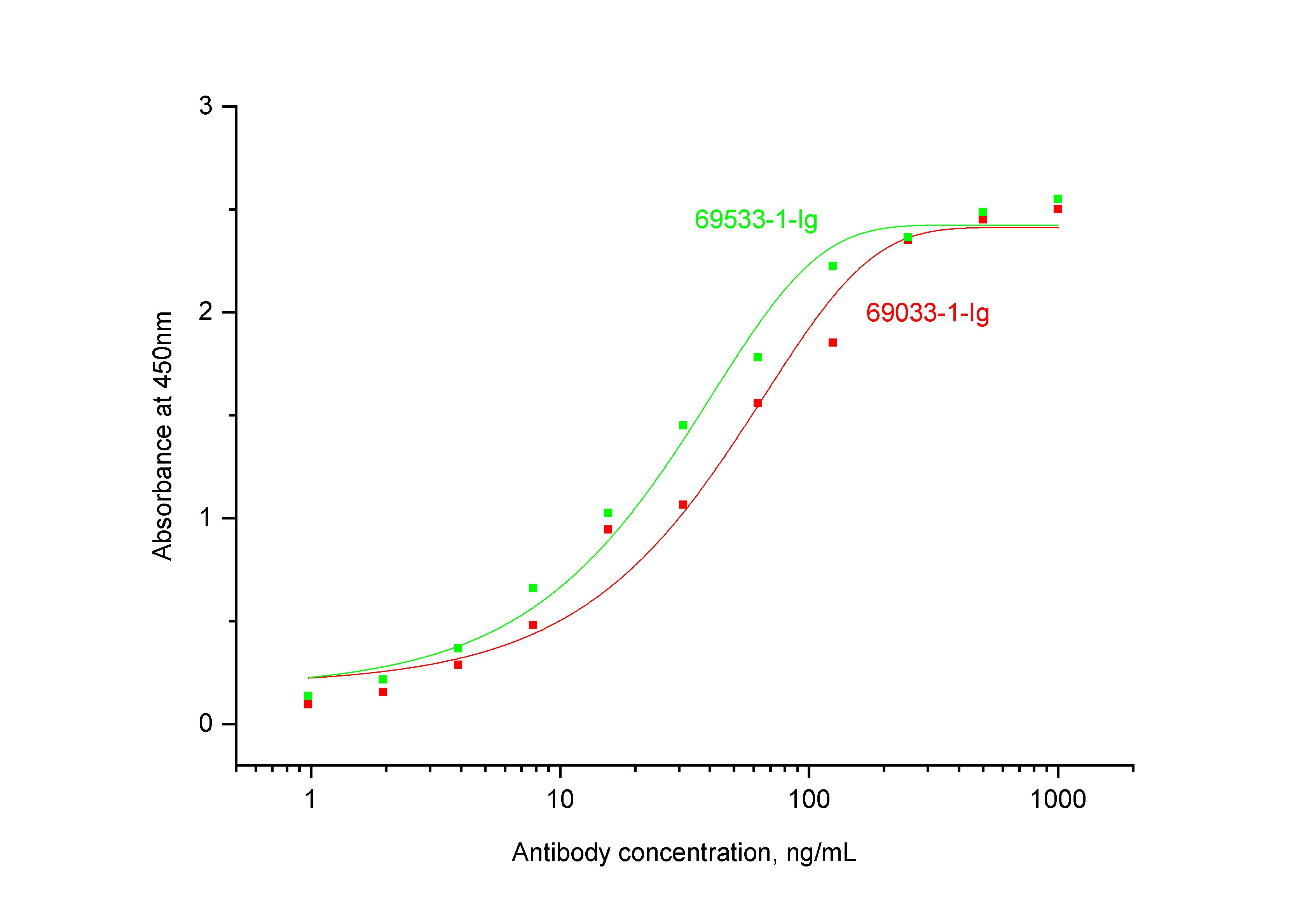Product Information
69033-1-PBS targets NeutraKine®M-CSF as part of a matched antibody pair:
MP50033-1: 69033-1-PBS capture and 68662-1-PBS detection (validated in Sandwich ELISA)
Unconjugated mouse monoclonal antibody pair in PBS only (BSA and azide free) storage buffer at a concentration of 1 mg/mL, ready for conjugation.
This conjugation ready format makes antibodies ideal for use in many applications including: ELISAs, multiplex assays requiring matched pairs, mass cytometry, and multiplex imaging applications.Antibody use should be optimized by the end user for each application and assay.
| Tested Reactivity | human |
| Host / Isotype | Mouse / IgG1 |
| Class | Monoclonal |
| Type | Antibody |
| Affinity | KD=8.48 x 10-9M KOff=4.75 x 10-4M KOn=5.60 x 104M |
| Immunogen | human HumankineM-CSF protein HZ-1192 Predict reactive species |
| Full Name | colony stimulating factor 1 (macrophage) |
| Gene Symbol | M-CSF |
| Gene ID (NCBI) | 1435 |
| Conjugate | Unconjugated |
| Form | Lyophilized Powder |
| Purification Method | Protein G purification |
| Storage Buffer | PBS only , pH 7.3 |
| Endotoxin | <0.1 EU/μg |
| Reconstitution | This product was lyophilized from a 0.2 μm filtered solution in PBS. Reconstitute at 1.0 mg/mL in sterile H2O before use. |
| Stability and Storage | Lyophilized antibodies are stable for 1 year from the date of receipt if stored between (-20°C) and (-80°C). Upon reconstitution we recommend that the solution can be stored at (4°C) for short term or at (-20°C) to (-80°C) for long term. Repeated freeze thaw cycles should be avoided with reconstituted products. |
Background Information
M-CSF plays an essential role in the regulation of survival, proliferation, and differentiation of hematopoietic precursor cells, especially mononuclear phagocytes. M-CSF promotes the release of proinflammatory chemokines and thereby plays an important role in innate immunity and in inflammatory processes. It also plays an important role in the regulation of osteoclast proliferation and differentiation, the regulation of bone resorption, and is required for normal bone development. On the cellular level, M-CSF promotes reorganization of the actin cytoskeleton, regulates the formation of membrane ruffles, cell adhesion, and cell migration, and plays a role in lipoprotein clearance.
This antibody is used to neutralize the bioactivity of M-CSF.
